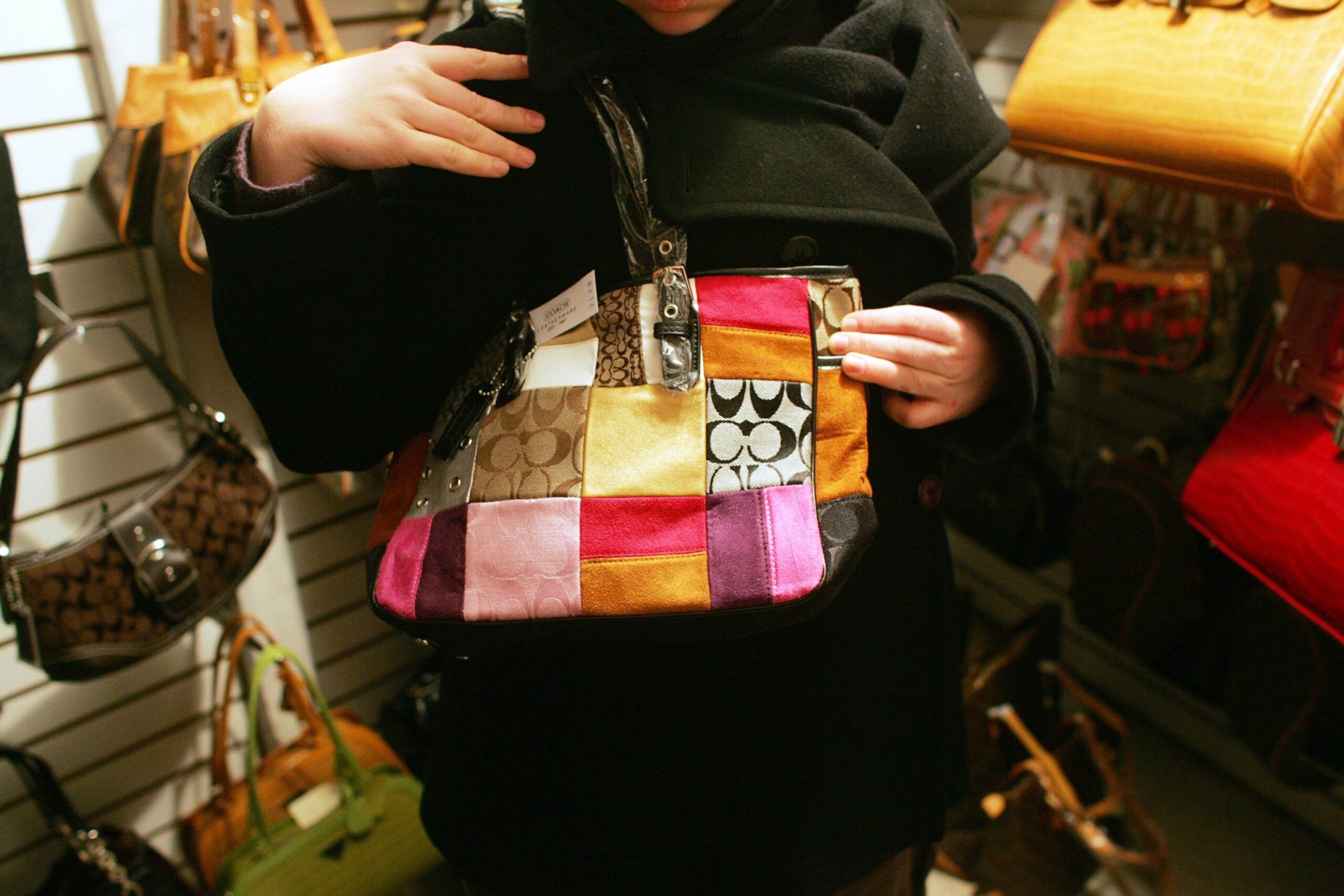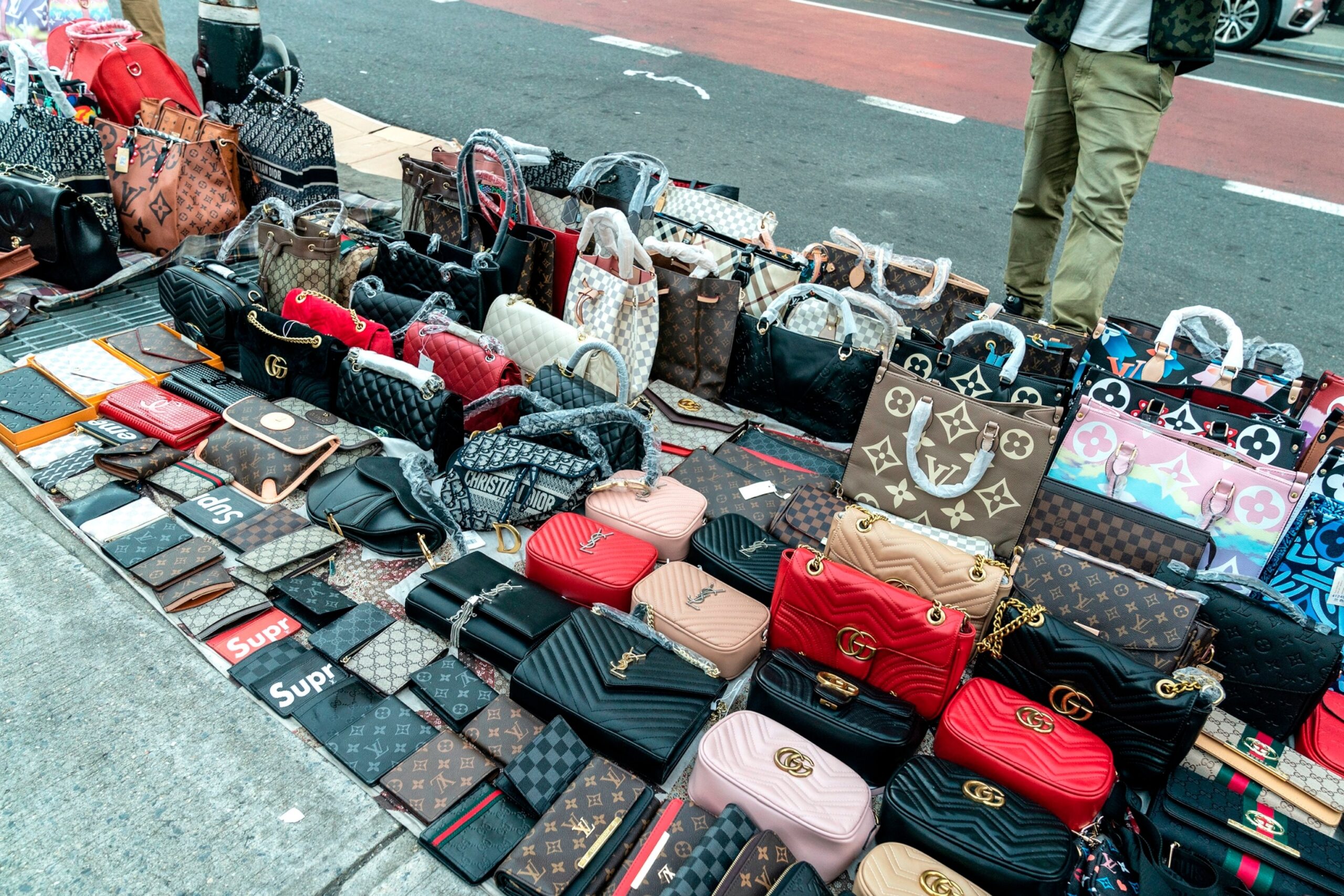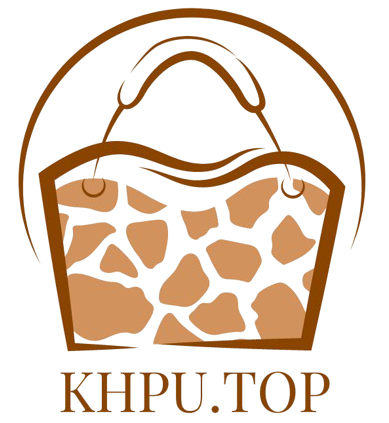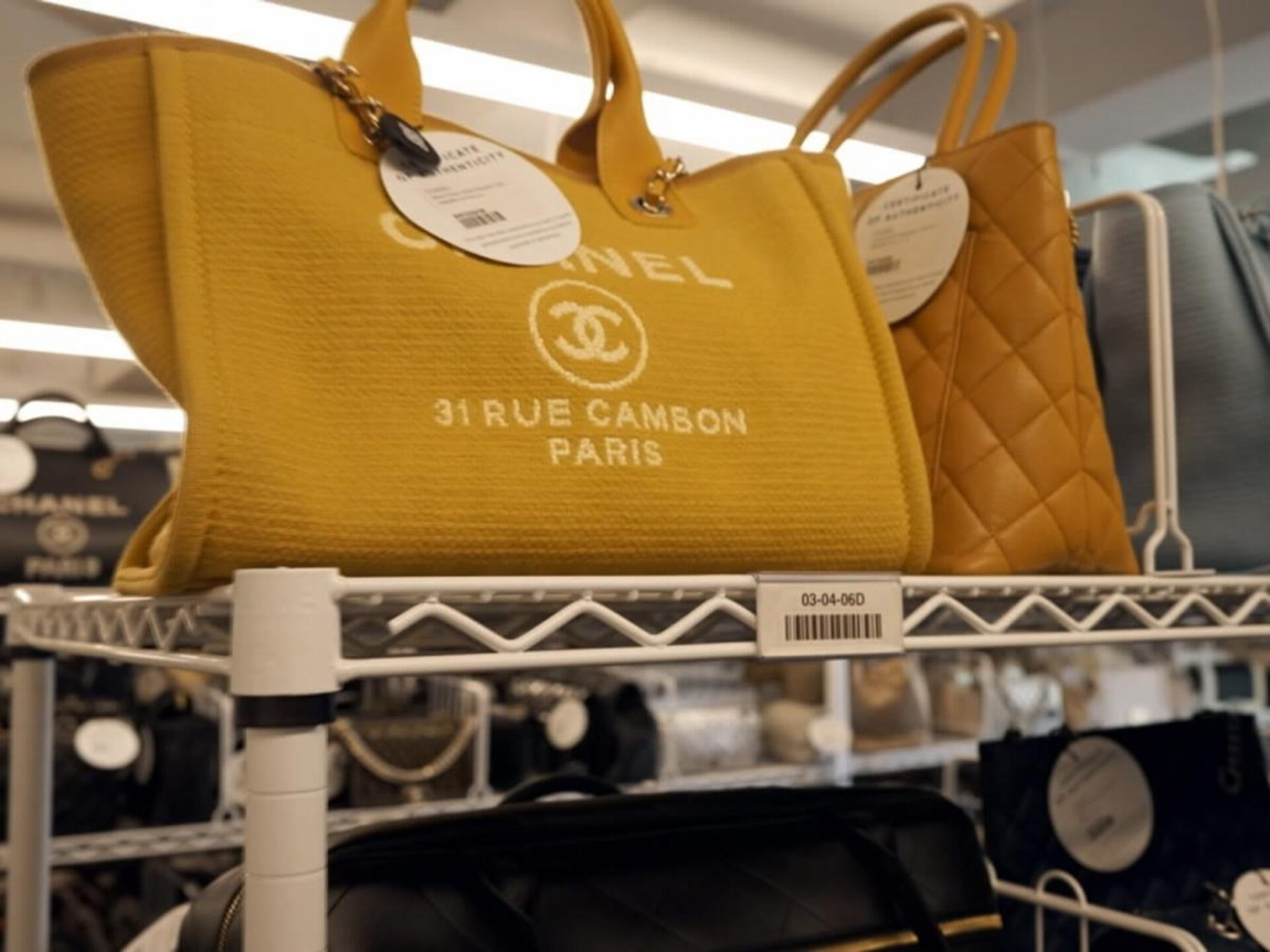Counterfeit luxury handbags have become a social media phenomenon. Instead of cheaply made knockoffs, the latest crop of counterfeit handbags, known as “superfakes,” looks very similar to the authentic luxury item.
As high-end luxury brands including Hermes, Chanel, and Prada have boosted their prices in recent years, many consumers turned to deceivingly high-quality replicas for a fraction of the price.
The precision and attention to detail put into making replica handbags have made it easier for them to pass off as genuine luxury products, with hardly any noticeable differences to the untrained eye.

In this Feb. 1, 2006, file photo, an unidentified woman holds up a counterfeit Coach handbag in the back room of tourist shop in New York’s Chinatown.
Bloomberg via Getty Images, FILE
“Twenty years ago, counterfeits were terrible. Those things were $25… [Now,] some counterfeit Birkins are $6,000 plus, handmade,” Sarah Davis, president and founder of Fashionphile, a high-end consignment boutique, told “Impact x Nightline,” which takes a look at the counterfeit luxury goods market. This episode is now streaming on Hulu.
“[With] technology, the ability to make a superfake is easier now than ever before,” said Frank Russo, U.S. Customs and Border Protection (CBP) Director of Field Operations.
According to the agency’s reports, counterfeit goods comprise a staggering 2.5% of global trade. Luxury goods are the most commonly counterfeited items. Last fiscal year, Russo’s team seized nearly 23 million counterfeit goods nationwide worth over $2 billion in estimated retail value, calculated as if they were authentic.
Even some celebrities have been sporting the superfake merchandise. “The Real Housewives of Salt Lake City” star Jen Shah made headlines when federal agents seized dozens of counterfeit handbags found in her possession, after her arrest in 2021 for a telemarketing fraud scheme.
Despite counterfeit sellers conducting business publicly, law enforcement said it’s difficult to crack down on their activity. ABC News contacted over 50 sellers based in China. While most declined to respond, one seller disclosed that the operation is often exceedingly discreet, with each link of the process isolated from the others.
Buying, however, is an easier process. During the COVID-19 pandemic, Amy X. Wang, assistant managing editor for the New York Times Magazine, reported on the superfake industry.
“It’s not really a secretive process,” said Wang, “[It’s] almost disappointingly easy,” Wang said.
Wang discovered an online ecosystem of replica handbags that paralleled luxury brands, making counterfeit goods easily accessible. On Reddit forums such as “r/Wagoonladies,” interested buyers can find detailed purchase guides, thorough customer reviews, and contact lists for sellers primarily based in China.
“Some people think it’s an embarrassing secret,” Wang said. “But to the other people, it’s fun. It’s subversive. It’s actually really edgy that they have a fake bag maybe.”
Despite the increased prevalence of counterfeit luxury goods, authentic luxury brands continue to be solid investments. Resale data from Rebag indicates that popular styles from brands such as Louis Vuitton, Chanel, and Hermes are being resold second-hand for prices higher than their original purchase price. Luxury brands are keeping their goods exclusive and their prices high.
Related Stories
Sarah Davis, president and founder of Fashionphile, has created a resale platform that sells pre-owned luxury handbags, allowing consumers to buy authentic bags, in most cases, for a fraction of the retail price.
“The truth is, there’s never been more counterfeits that are better, the superfakes, like today,” Davis said. “And yet the luxury brands have never been stronger.”

In this Nov. 19, 2020, file photo, street vendors sell counterfeits goods like bags, sunglasses, belts and watches, in New York.
Lev Radin/Sipa USA via AP, FILE
Dallas-based leather expert and social media personality, Volkan Yilmaz, who calls himself Tanner Leatherstein, has a popular YouTube series dedicated to demystifying leather in luxury handbags. He deconstructs designer purses and comes up with his own cost estimates.
“Is it worth the price? Well, it’s up to you,” Leatherstein told “Impact x Nightline.”
He draws a line at counterfeits. “Somebody’s stealing the brand’s property, that intangible prestige…which is insanely difficult to create,” Leatherstein said. “But I’m no one to judge,” he added.
In November 2023, federal agents executed the largest seizure of counterfeit goods in U.S. history. Authorities announced the seizure of around 219,000 counterfeit bags, clothes, shoes, luxury products, and other items. The total estimated manufacturer’s suggested retail price of these items was approximately $1.03 billion.
“China and Hong Kong are [the origins of] probably closer to 70% of all the counterfeit goods that we see,” CBP Director Russo said. “Counterfeit goods are a direct link to terrorist organizations,” said Russo.
When CBP was asked for evidence linking counterfeits to terrorism in the U.S., they cited the 1993 attack on the World Trade Center as an example. Additionally, they asserted that “other terrorist organizations have engaged in the sale of counterfeit goods and stolen cultural artifacts to help fund their organization.”
Terrorists responsible for the 2015 terror attack in France on employees of the magazine Charlie Hebdo financed their weapons partly by selling fake Nike sneakers, according to authorities.
The department declined to provide specifics when “Impact x Nightline” asked for evidence linking counterfeits to terrorism in the United States.
“I would say to people who are thinking, ‘well, I’m just buying a purse,’ it’s still the same issue,” Marc Miller, Senior Vice President of the International AntiCounterfeiting Coalition, told ABC News. “One, it’s a crime. Two, it’s bad for the economy. But three, they’re also giving their financial information to organized crime.”
“Counterfeiting is a major problem throughout the United States,” said Michael Alfonso, who heads the division investigating large-scale counterfeiting networks for Homeland Security Investigations in New York. “Our law enforcement task force looks at a lot of different factors. We look at the scope of the organization. Are they importing? Are they distributing? Where are they importing from? Where’s there money moving from? And that’s how we scale our investigations.”

